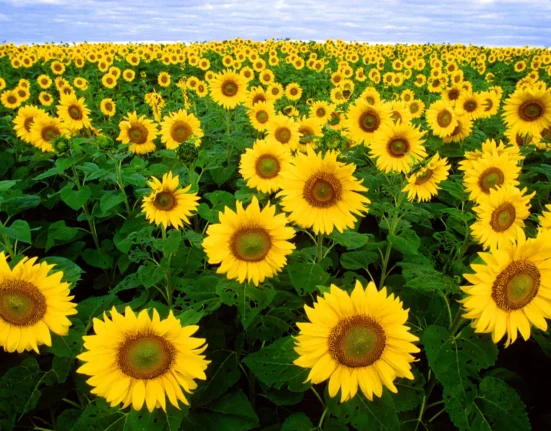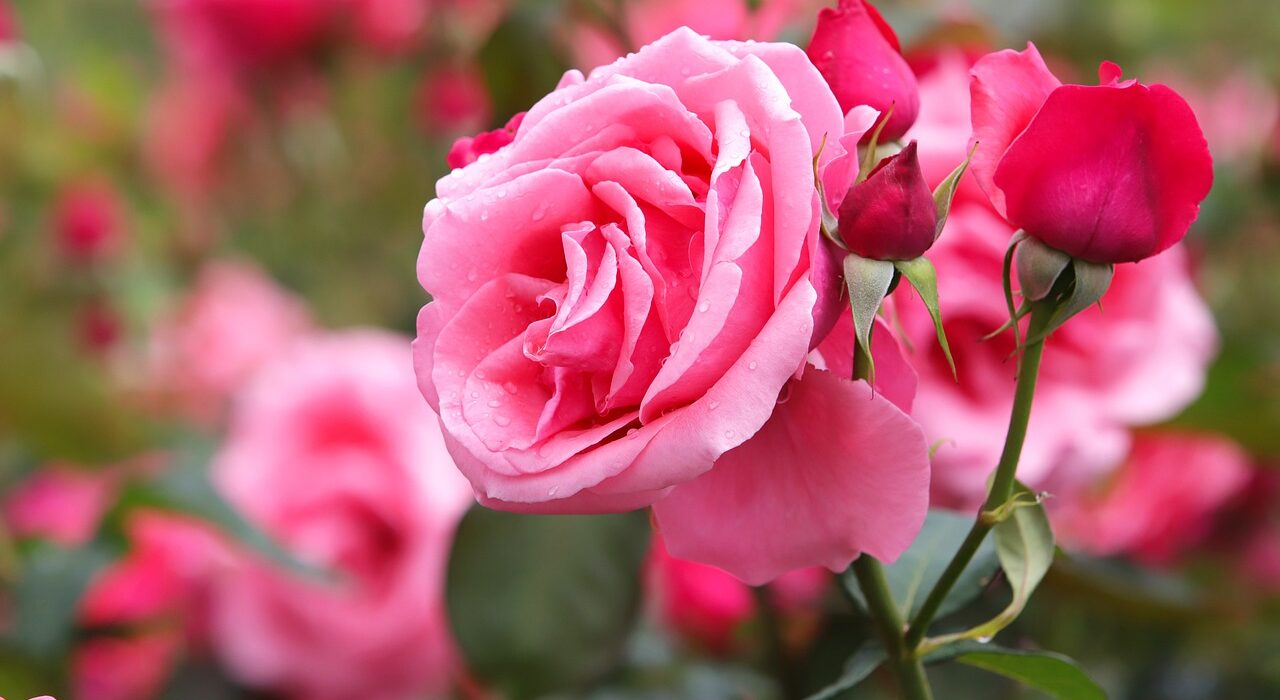Pretty Flowers have been a source of inspiration and joy for people worldwide for centuries. Their beauty and elegance add colour, fragrance, and life to gardens, homes, and natural landscapes. In this article, we’ll explore everything there is to know about pretty flowers, including some popular types, fascinating facts, and how to care for them. Whether you’re a seasoned gardener or just starting, this guide will help you appreciate these lovely blooms even more.
What Makes a Flower “Pretty”?
The concept of a “pretty flower” can be subjective, but most people agree that several vital features define beauty in flowers:
- Colour: Bright, vibrant colors like red, yellow, purple, and pink often catch the eye.
- Shape: Unique shapes, from delicate petals to symmetrical arrangements, make flowers visually appealing.
- Fragrance: Some flowers, like roses and lilies, have a pleasing scent that adds to their allure.
- Size: Different sizes appeal to different tastes, from tiny blossoms to large blooms.
These characteristics combine to make certain flowers stand out as beautiful flowers.
Popular Types of Pretty Flowers
When we talk about pretty flowers, certain varieties always come to mind. Here are some of the most beloved blooms that have captured people’s hearts worldwide.
Roses
Roses are often considered the most romantic of all flowers. With their soft petals, incredible fragrance, and wide range of colours, roses are famous for special occasions and are seen as symbols of love and admiration.
- Colours: Red, pink, yellow, white, orange, and even blue.
- Ideal For: Bouquets, weddings, and garden focal points.
Tulips
Tulips bring a fresh burst of colour, especially in spring. These elegant flowers have a simple, cup-like shape and come in almost every colour imaginable.
- Colours: Red, pink, purple, white, yellow, and more.
- Ideal For: Spring gardens, flower beds, and cutting gardens.
Sunflowers
Sunflowers are cheerful and warm, with large yellow petals and dark centres. These tall, sturdy flowers turn their heads to follow the sun, making them a valid symbol of optimism and joy.
- Colors: Mostly yellow, but some varieties come in red and orange.
- Ideal For: Gardens, outdoor decorations, and sunflower fields.
Daisies
Daisies are known for their simple, classic beauty. With a yellow centre surrounded by white petals, they evoke a sense of innocence and playfulness.
- Colours: Primarily white, though other varieties have pink or purple petals.
- Ideal For: Wildflower gardens, casual bouquets, and filler flowers.
Orchids
Orchids are exotic and often have an unusual, striking appearance. Known for their intricate patterns and vibrant colours, they can make any space more luxurious.
- Colours: Purple, pink, white, blue, and more.
- Ideal For: Indoor decoration, flower arrangements, and exotic gardens.
The Importance of Pretty Flowers in Nature
Pretty flowers aren’t just lovely to look at—they play a crucial role in the ecosystem. Here’s how they help the environment:
- Pollination: Flowers attract bees, butterflies, and other pollinators, which helps plants reproduce.
- Food Source: Many animals, including insects and birds, rely on flowers for food.
- Biodiversity: Flowering plants contribute to various species within ecosystems, supporting wildlife.
By planting and caring for pretty flowers, we help maintain our world’s natural balance and beauty.
How to Grow Pretty Flowers in Your Garden
Growing pretty flowers at home can be incredibly rewarding. Not only will your garden look beautiful, but you’ll also provide a haven for pollinators. Here are some steps to get started.
Choosing the Right Flowers
Before planting, consider your climate, soil type, and sunlight Availability. Not all pretty flowers will thrive in every environment, so choosing flowers suited to your region is essential.
Flower Types Based on Sunlight Needs:
| Sunlight Requirement | Example Flowers |
|---|---|
| Full Sun | Sunflowers, Tulips |
| Partial Shade | Daisies, Orchids |
| Full Shade | Ferns, certain Orchids |
Preparing the Soil
Good soil is the foundation for healthy flowers. Flowers need well-draining soil that’s rich in nutrients. Here’s how to prepare it:
- Loosen the Soil: Dig down about 12 inches to aerate the soil.
- Add Compost: Mixing in compost or organic matter will improve soil fertility.
- Test pH Levels: Most flowers prefer a slightly acidic to neutral pH (6.0-7.0).
Watering and Feeding
Different flowers have varying water needs, but in general:
- Water Regularly: Most flowers need about an inch of water per week.
- Avoid Overwatering: Too much water can lead to root rot.
- Use Fertilizer: Apply a balanced fertilizer once a month to keep blooms healthy and vibrant.
Tips for Keeping Cut Flowers Pretty for Longer
If you love pretty flowers in your home, knowing how to keep them fresh longer is essential. Here are some tips:
- Trim Stems: Cut stems at a 45-degree angle to help flowers absorb more water.
- Use Fresh Water: Change the water every two days to keep it clean.
- Remove Foliage: Remove leaves below the water line to prevent bacterial growth.
- Add Flower Food: Use flower food, a teaspoon of sugar, and a few drops of bleach to extend the flowers’ life.
Following these steps can help your pretty flowers stay fresh and vibrant for days.
Exciting Facts About Pretty Flowers
Flowers are full of surprises! Here are some fascinating facts about pretty flowers you might not know.
- Tulips Were Once Priceless: In the 1600s, tulips were so valuable in the Netherlands that they caused a financial frenzy known as “Tulip Mania.”
- Sunflowers Clean the Soil: Sunflowers can absorb toxins like lead and arsenic from the soil, making them great for environmental cleanup.
- Orchids Can Live for Years: Some orchid plants can live for decades with proper care.
- Roses Have Been Around for 35 Million Years: Fossil evidence shows that roses have existed since ancient times.
These little-known facts make pretty flowers even more fascinating!
Symbolism of Pretty Flowers
Flowers are often given as gifts, and each type has its unique meaning. Here are a few examples of flower symbolism:
- Rose: Love and passion
- Daisy: Innocence and purity
- Lily: Purity and refined beauty
- Sunflower: Happiness and vitality
- Orchid: Elegance and strength
Understanding the symbolism behind pretty flowers can help you choose the perfect flower for any occasion.
Why Pretty Flowers Are Good for Mental Health
Beyond their aesthetic appeal, pretty flowers have been shown to have mental health benefits. Studies reveal that being around flowers can reduce stress, boost mood, and improve memory.
- Stress Relief: Looking at flowers can lower blood pressure and create a calming effect.
- Boosted Mood: Bright, colourful blooms can make people happier and more optimistic.
- Enhanced Focus: Plants and flowers in workspaces can improve concentration and productivity.
Planting or simply being around pretty flowers can be a natural way to boost your mental well-being.
Conclusion: Embracing the Beauty of Pretty Flowers
From their vivid colours and sweet scents to their unique shapes and symbolic meanings, pretty flowers have a timeless charm that continues to captivate people. Whether growing them in your garden, arranging them in a bouquet, or simply admiring them in nature, flowers bring beauty and joy to our lives.
In addition to their visual appeal, pretty flowers contribute significantly to the environment and our mental health. With the tips and information provided here, you’re ready to appreciate and care for these beautiful blooms even more. So plant some pretty flowers in your garden or pick a bouquet to brighten your home—nature’s masterpieces are waiting to bring magic to your life.














